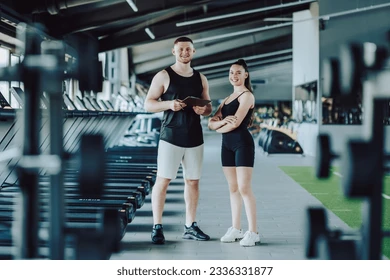Choosing the perfect venue is crucial for any event’s success. Whether you’re organizing a wedding, corporate gathering, or an intimate social event, the venue sets the tone and greatly impacts the attendee experience. In this article, we’ll explore what factors to consider when selecting a venue and how to find one that fits your event’s needs perfectly.
1. Event Type and Purpose
The type of event you’re hosting will significantly influence the type of venue you need. For example:
- Weddings often require picturesque locations with ample space for guests and entertainment.
- Corporate events need more formal venues that offer technology for presentations and space for networking.
- Social gatherings might benefit from a cozy, intimate setting with relaxed seating arrangements.
Understanding the purpose of your event helps you narrow down venues that align with your goals.
2. Location
The venue’s location is one of the most important factors to consider. If you’re expecting out-of-town guests, look for venues near airports, hotels, and transportation hubs to make attendance easier. For local events, select a spot central to your audience or a unique destination within the region to create excitement.
Consider the following:
- Accessibility: Ensure the venue is easily reachable for all guests, including those with disabilities.
- Ambiance: Location contributes to the vibe. For example, venues by the beach or in the mountains bring natural beauty, while city-center locations offer a modern feel.
- Parking: Availability of parking or public transportation access is crucial. Lack of convenient parking can deter guests from attending.
3. Capacity and Layout
The size of the venue should comfortably accommodate your guest list. It’s essential to have enough space for:
- Seating: Ensure the venue provides ample seating for the expected number of guests.
- Flow of Traffic: A well-planned layout should allow easy movement between the entrance, dining area, and restrooms.
- Additional Areas: Some events require break-out rooms, dressing areas for performances, or staging areas for catering. Consider if the venue offers flexible spaces to meet your needs.
Venues should have a maximum capacity limit to ensure the safety and comfort of guests, and it’s important to abide by these limits to avoid overcrowding.
4. Budget
Your budget will play a large role in choosing the perfect venue. When setting your event budget, consider:
- Rental Costs: Venues come with different pricing structures—some charge per hour, others offer flat rates. Understand what’s included, such as setup, teardown, and overtime fees.
- Catering Costs: Many venues offer in-house catering services. Compare the menu options and pricing to ensure they fit within your budget. Some venues allow outside catering, giving you more flexibility.
- Additional Services: Lighting, sound systems, and furniture are often considered add-ons. Factor these into your budget early so there are no surprises later.
5. Availability
Popular venues can be booked months, even years in advance, especially during peak seasons like holidays and summer. Early booking is essential to ensure you secure your ideal venue. Additionally, confirm the venue’s flexibility in case the date needs to be adjusted or postponed.
Check availability for:
- Preferred Date and Time: Some venues offer discounts for events held on weekdays or during off-peak seasons.
- Setup and Teardown Time: Confirm how much time is allotted for setup and teardown and whether additional time can be purchased if needed.
6. Services and Amenities
Choosing a venue with the right amenities can greatly ease the event planning process. Some venues come fully equipped, while others offer just the space, requiring you to rent additional services. Amenities to consider include:
- Catering: In-house catering services can reduce the hassle of finding an external provider. Ensure the venue’s menu meets your needs, or ask if they allow outside catering if you prefer.
- Technical Equipment: For corporate events or weddings requiring presentations, sound, and lighting setups, check if the venue offers AV equipment. Some venues may even provide technicians to help.
- Event Staff: Ask if the venue includes on-site staff for setup, serving, and event coordination. A dedicated team can make your event run smoothly.
7. Style and Ambiance
The venue’s style should complement the theme and tone of your event. This could range from modern, sleek spaces to rustic, country settings, depending on the occasion. For example:
- Formal Events: Look for venues with grand ballrooms, chandeliers, or elegant décor that suits a black-tie theme.
- Casual Events: Rustic barns, loft spaces, or garden venues offer a more relaxed and intimate atmosphere.
The ambiance of the venue contributes to the overall experience for attendees, so make sure it aligns with your vision.
8. Acoustics
Good acoustics are essential, especially for events with speakers, live music, or presentations. A venue with poor acoustics can make it difficult for guests to hear, which detracts from their overall experience. Visit the venue during another event or ask for references to ensure the sound quality meets your needs.
- Outdoor Venues: Check if the venue has amplification systems for speakers and performers.
- Indoor Venues: Inquire about soundproofing and whether outside noise could be an issue.
9. Weather Considerations
If you’re considering an outdoor venue, always have a backup plan in case of bad weather. Ask the venue about their contingency plans, such as tents, indoor spaces, or rescheduling options.
For indoor events, check if the venue is climate-controlled, especially if your event takes place during extreme weather conditions. Comfort is key to making guests feel at ease throughout the day.
10. Reputation and Reviews
Research the venue’s reputation by reading online reviews and testimonials from past clients. Word of mouth is often the best way to gauge how well a venue operates. Pay attention to reviews regarding:
- Staff Friendliness: Helpful, accommodating staff can make all the difference in your event planning process.
- Responsiveness: A venue that responds quickly to inquiries or concerns signals strong communication and professionalism.
- Previous Events: Look at photos and details from past events held at the venue to get a feel for what’s possible.
Conclusion
Selecting the perfect venue requires careful consideration of many factors, from location and capacity to services and amenities. Taking the time to assess your event’s specific needs and matching them to a suitable venue will ensure your event runs smoothly and leaves a lasting impression on your guests. Always start your search early, stay flexible, and keep an open mind as you explore different options. With the right planning, you’ll find the ideal Perfect Venue for your next event.







